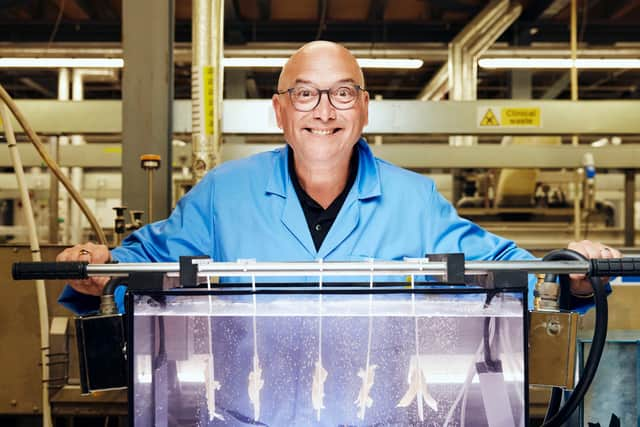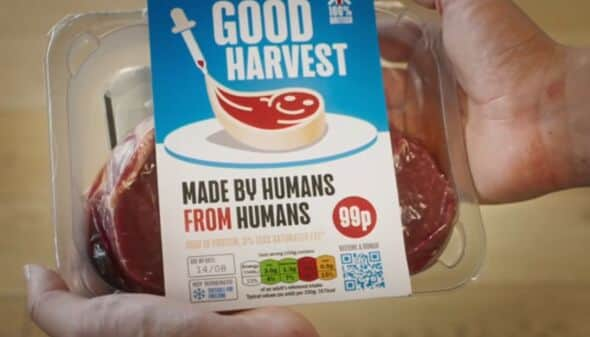Gregg Wallace: The British Miracle Meat: is Channel 4 ‘human meat’ documentary real - what has presenter said?
and live on Freeview channel 276
MasterChef and Inside the Factory star Gregg Wallace fronted an unusual new documentary for Channel 4 which shocked audiences when it aired this week.
The special episode purported to explore the benefits of a new lab grown meat that could be the answer to the cost of living crisis. The surprising twist came when Gregg announced that the meat in question was made from human cells, and would therefore be human flesh.
Advertisement
Hide AdAdvertisement
Hide AdThe episode became more deranged as it went on, with Gregg eventually trying a human meat steak, leaving viewers wondering (and hoping) if it was all a joke.
Since the episode was first released on Monday, many viewers shared their thoughts on the disturbing doc on social media, and Gregg has finally answered the burning question, did he really make a documentary featuring him eating human meat?


Is The British Miracle Meat documentary real?
Thankfully, the Miracle Meat episode was a mockumentary, meaning it was a parody of traditional food documentaries. Though, with Wallace fronting the show, the relatively high production value put into it, and no disclaimer at the top of the episode, for the first few minutes some viewers could easily have been taken in by the premise.
The end credits include thanks to Jonathan Swift, an Irish satirist whose 17th century essay A Modest Proposal sarcastically suggested that poor Irish families should sell their children for food to improve their financial situation. This was evidently the inspiration for the Channel 4 show.
What happens in Gregg Wallace: The British Miracle Meat?
Advertisement
Hide AdAdvertisement
Hide AdThe mockumentary begins with Gregg explaining that with the cost of living crisis sending food prices soaring, companies have been looking for a cheaper alternative. The result is human meat grown from the cells of real people, who are paid to donate them.
The mickey-taking becomes more on the nose the deeper into the episode you go - with Mick, who is in charge of growing the meat, explaining that 'thankfully now we're out of the EU we can harvest people and we can pay them for their flesh.'


And it only gets weirder, as Gregg teams up with Le Gavroche chef Michel Roux Jr. to cook and try some of the human steaks. They compare the taste of people with different lifestyles - a steak from the cells of an NHS worker with a second job is ‘stringy’, whilst one from a man who was made redundant tastes ‘plumper’.
Gregg ruefully comments ‘it’s not good for Guy to be made redundant like that but it’s great for us’.
Advertisement
Hide AdAdvertisement
Hide AdLater on, Gregg learns that steaks are also being made from child donors, which apparently tested well in focus groups.
The political punch of the mockumentary really lands at the close, with Gregg explaining, as images of ‘human meat’ being harvested are played: “The Trussell Trust says a future without food banks requires a benefits system that works for all, and secure income so people can afford essentials. So it’s no surprise eating children seems a more likely path for our country.”
What has Gregg Wallace said about the mockumentary?
Gregg admitted that his show was a work of satire, sharing a post to Instagram in which he said he enjoyed his ‘first ever acting job’ and directed people to check out Swift’s satirical essay.
He also shared a review from The Independent which called the episode ‘a sledgehammer satire for a nation on its knees.
Comment Guidelines
National World encourages reader discussion on our stories. User feedback, insights and back-and-forth exchanges add a rich layer of context to reporting. Please review our Community Guidelines before commenting.
